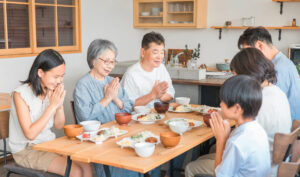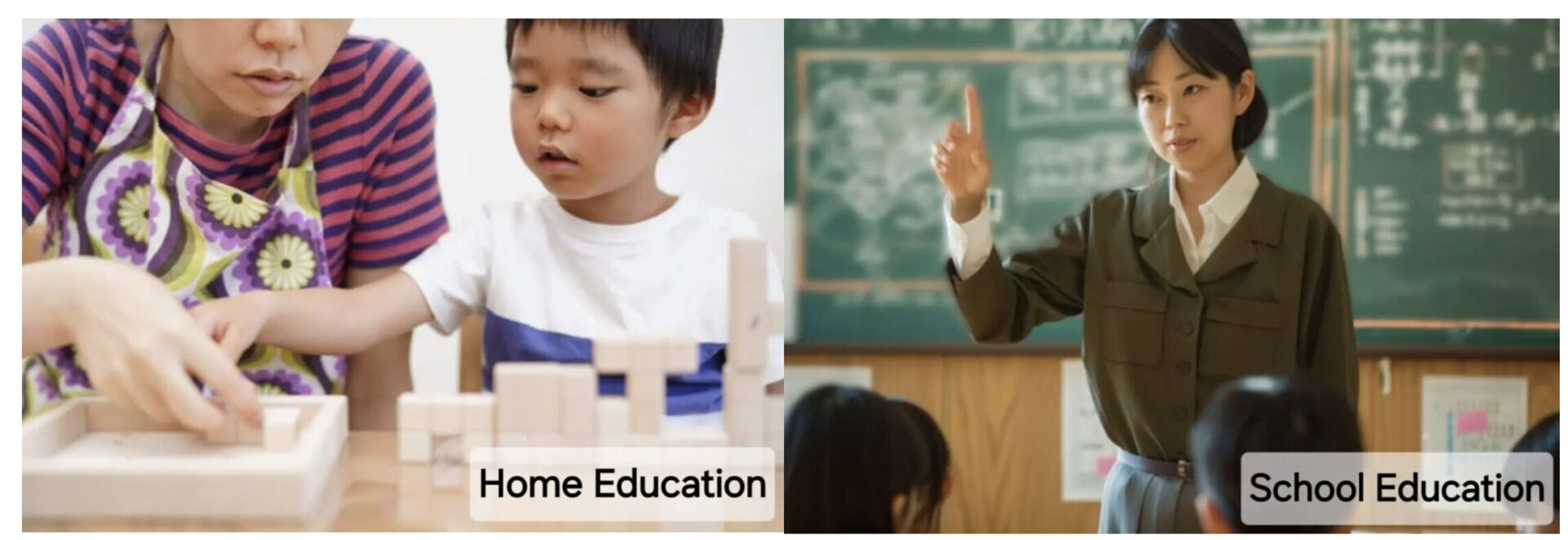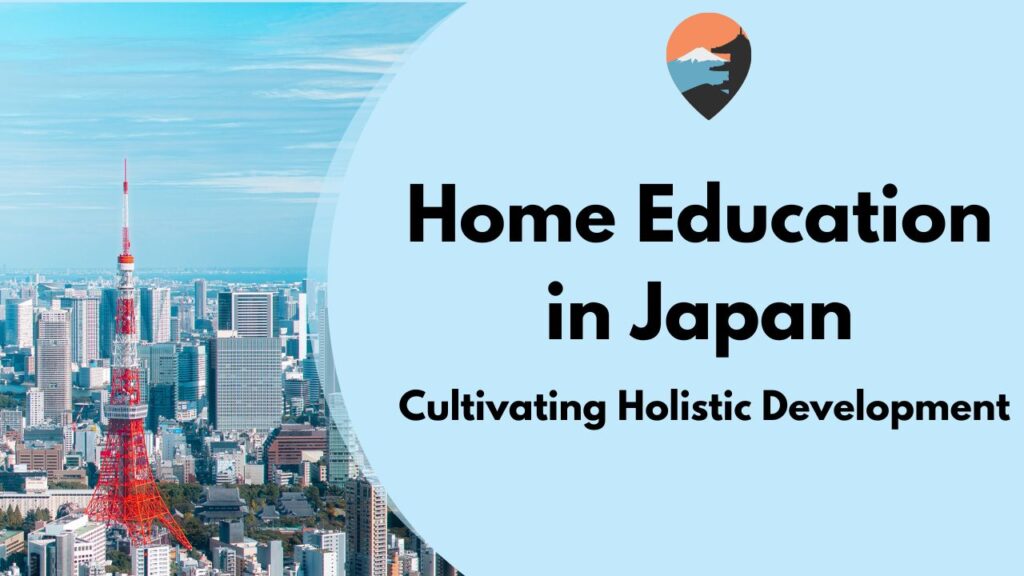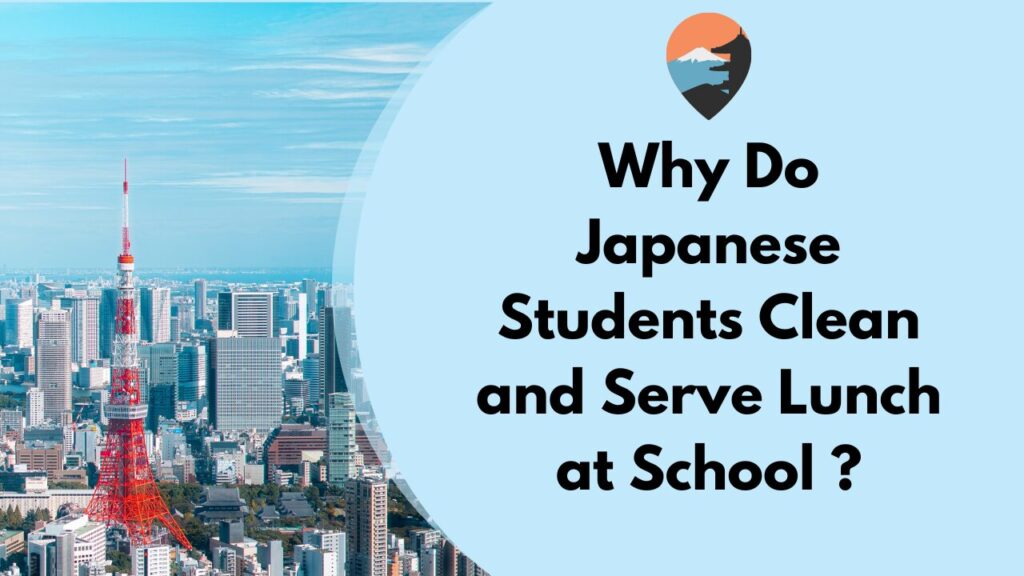Home education in Japan serves as the foundation of all education, focusing on essential skills and social manners. It significantly influences children’s thinking and interactions. This article explores Japanese home education, provides examples, and highlights the differences from school-based education. Through this exploration, we discover the importance of home education in fostering children’s holistic development.
What’s home education in Japan ?
Home education is the foundation of all learning. It encompasses instilling the necessary social skills for effective interaction and leading a fulfilling life !! While schooling contributes to shaping children, the basis of their thinking patterns and their ability to engage with their peers stems from home education.
Once a strong foundation is laid through home education, individuals are equipped to face and overcome challenges.
Examples of home education in Japan

In Japanese households, the following principles are primarily emphasized :
・Maintaining a disciplined lifestyle
Prioritizing early bedtimes, waking up early and eating breakfast as well as eating three balanced meals a day
・Valuing familial togetherness
Engaging in family meals and outdoor activities together
・Respecting and greeting neighbors
・Encouraging personal responsibility and tidiness
・Engaging in conversations about daily life with family members
・Teaching appropriate behavior in public places
・Promoting personal grooming and hygiene
Additionally, Japanese households also focus on imparting specific manners and behaviors such as :
・Proper way to hold chopsticks
・Appropriate toilet etiquette
・Developing interpersonal skills and manners
・Understanding societal rules and prohibitions
These teachings aim to nurture children into independent and responsible adults.
What’s the difference between home education and school education ?

| Home Education | School Education |
| Conducted at home | Conducted at school |
| Supervised by guardians (parents, grandparents) | Supervised by licensed professional instructors |
| Tailored to individuals | Target at groups |
| Varies across household | Uniform curriculum nationwide |
| Observed from birth until achieving self-sufficiency | Observed from 6 to 18 years old |
In essence, home education refers to the educational efforts undertaken by parents to teach their children essential skills and knowledge for their day-to-day life. Children emphasize learning through everyday experiences, play, and practical applications. By fostering family interactions and instilling basic lifestyle habits, children develop vital life skills, a refined sensibility, self-esteem, and independence.
We have discussed the definitions and examples of home education, as well as the distinction from school education. Next, let’s explore the eight key points outlined by a school board within a particular city.
8 Key Points in Home Education
The Kanazawa City Board of Education recommends eight aspects to focus on in home education. These recommendations aim to create a nurturing environment within homes to empower children’s holistic development as home education is the starting point for all children.
- Cultivating a thirst for learning together with children
- Upholding rules and regulations – Children often observe their parents’ behavior.
- Effective communication with others – Greeting with a smile in the morning is the first step.
- Creating warm family interactions
- Fostering compassion for all life
- Expressing heartfelt gratitude
- Promoting children’s health and well-being – Going to bed early, waking up early, having breakfast every day
- Providing support to children’s dreams and possibilities
Through family interactions by having those points in mind, it plays an important role in helping children acquire basic daily habits and life skills, trust in people, rich emotions, consideration for others, basic ethics, self-respect, independence, and social manners.
Source: Home education website of Kanazawa City
Why is it important to go to bed early, get up early and have breakfast ?

A National Council of “Early to bed, early to rise, breakfast” conducted a survey on the habits of going to bed early, getting up early and having breakfast.
The survey revealed three key things :
- People who consistently practiced these habits of going to bed early, waking up early, and having breakfast remained independent and energetic even as they grew older. When we say “energetic,” we mean they were highly motivated, had a strong sense of discipline, performed well in their endeavors, and possessed a strong sense of self-confidence.
- Regardless of their family’s economic status, individuals who followed the routine of “going to bed early, waking up early, and having breakfast” were found to be more energetic. Previous research has highlighted the impact of economic inequality on academic performance, but this study demonstrates that children who embraced the habit of “going to bed early, waking up early, and having breakfast” grew up to be independent individuals, irrespective of their family’s economic disparities.
- Children who engage in morning activities are still independent and healthy adults. It could be radio exercises, a walk, helping out, or even homework. Children who woke up early and did 10 to 15 minutes of morning activities before going to school demonstrated greater maturity.
Summary
What do you think about Japanese home education now after reading this article? It delves into how home education shapes children’s development and well-being through essential skills and family values. It’s time to start inculcating small habits like waking up early and going to bed early to ensure a healthy, happy, and active future for you and your family.
For those who want to know more about Japanese education
Shin Edupower provides programs that enable online exchange and collaboration between schools in India and Japan, as well as study tours to Japan for educators and students. If you would like to know more about education in Japan, please feel free to contact us here.



